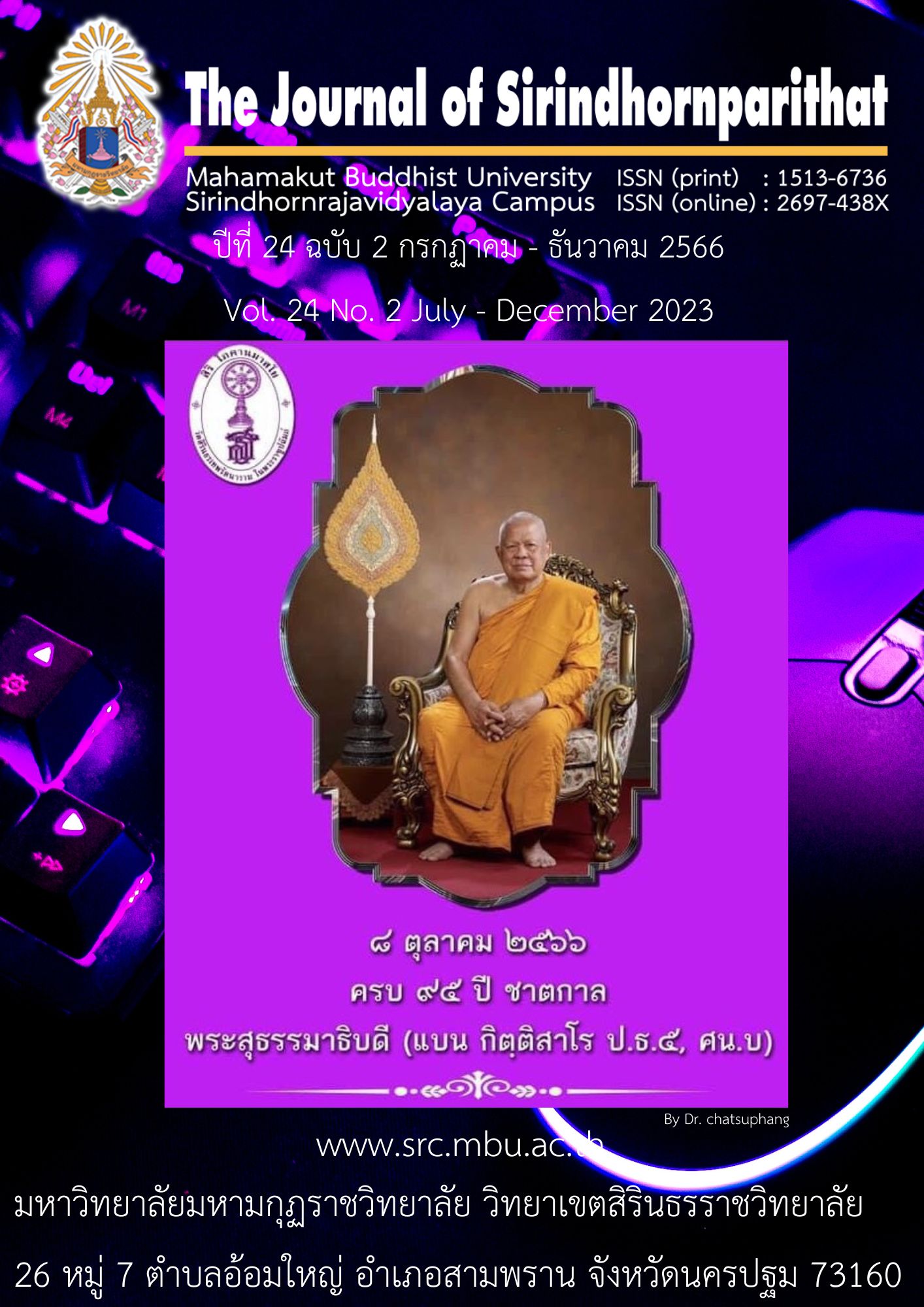Instructional Leadership of School Administrators of Samutsakhon Provincial Education Office
Keywords:
Instructional Leadership, Samutsakhon Provincial Education OfficeAbstract
The objectives of this research were 1) to study the Instructional Leadership of School Administrators of Samutsakhon Provincial Education Office and 2) to compare teachers’ Instructional Leadership of School Administrators, classified by gender, education level, and work experience. The sample consisted of 254 teachers. The research instrument was a questionnaire with a validity (IOC values) = 0.67-1.00 and a reliability value of 0.91. The data were statistically analyzed by using percentage, mean, standard deviation, t-test, One-way ANOVA, and LSD.
The research results were as follows:
1) the Instructional Leadership of Private School Administrators of Samutsakhon Provincial Education Office was at the highest level in overall and particular aspects, ranking from the highest to the lowest mean: Maintaining High Visibility, Supervising and Evaluating Instruction, Coordinating the Curriculum, Developing and Enforcing Academic Standards, Providing Professional Development, Protecting Instructional Time, Monitoring student progress, Providing Incentives for Learning, Communicating school Goals, Framing the school Goals, and Providing Incentives for Teachers respectively, and 2) opinions of teachers on the Instructional Leadership of Private School Administrators, classified by gender did not have a statistically significant difference. Work experience, in overall and in particular aspects, and Education level excepting Supervising and Evaluating Instruction, Monitoring student progress, and Protecting Instructional Time had a statistically significant difference at .05 level.
References
คณะกรรมการการศึกษาแห่งชาติ, สํานักงาน. (2559). พระราชบัญญัติการศึกษาแห่งชาติพ.ศ. 2542 และฉบับแก้ไขเพิ่มเติม (ฉบับที่ 2). กรุงเทพมหานคร: สํานักงานคณะกรรมการ การศึกษาแห่งชาติ.
สิริฉัตร รัตนสุวรรณ์ และ ตรัยภูมินทร์ ตรีตรีศวร. (2561). ภาวะผู้นำทางวิชาการของผู้บริหารสถานศึกษาในศตวรรษที่ 21 สังกัดสำนักงานเขตพื้นที่การศึกษาประถมศึกษาสงขลา เขต 2. วิทยานิพนธ์ปริญญาการศึกษามหาบัณฑิต คณะศึกษาศาสตร์และศิลปศาสตร์ มหาวิทยาลัยหาดใหญ่.
พนารัตน์ หุ่นเอี่ยม. (2559). ภาวะผู้นำของผู้บริหารสถานศึกษาในกลุ่มอำเภอแก่งหางแมว สังกัดสำนักงานเขตพื้นที่กรศึกยาประถมศึกษาจันทบุรี เขต 1. วิทยานิพนธ์ปริญญามหาบัณฑิต บัณฑิตวิทยาลัย มหาวิทยาลัยบูรพา.
ปรียาพร วงศ์อนุตรโรจน์. (2553). การบริหารงานวิชาการ. กรุงเทพมหานคร: พิมพ์ดี.
Cronbach, L. J. (1990). Essentials of psychological testing (5thed.). New York: Harper and Collins.
Chell, J. (2001). Introducing Principal to the Role of Instructional Leadership A Summary of Master’s Project.
Dimmock, C., and A. Walker. (2005). Educational Leadership: Culture and Diversity. Gateshead: Athenaeum Press.
Edmonds, R. (1979). Some schools work and more can. Social Policy, 9: 28-32.
Hallinger, P., & Murphy, J. (1987). Instructional Leadership in the School Context. In W. Greenfield (Ed.), Instructional Leadership: Concepts, Issues and Controversies. Boston, MA: Allyn and Bacon, Inc.
Hughes, L. Ubben, G. (1989). The elementary principal’s handbook. Boston, MA: Allyn and Bacon.
Krejcie, R. V. & Morgan, D. W. (1970). Determining Sample Size for research activities Educational and Psychological Measurement. 30(3): 608.
Lezotte, L. (1994). The nexus of instructional leadership and effective schools. The School Administrator, 51(6): 22-23.
Leithwood, K. (2006). A review of the research: Educational leadership. The laboratory for student success at the temple university center for research in human development and education. University of Toronto.

Downloads
Published
Issue
Section
License
Copyright (c) 2023 Mahamakut Buddhist University

This work is licensed under a Creative Commons Attribution-NonCommercial-NoDerivatives 4.0 International License.
บทความที่ได้รับการตีพิมพ์เป็นลิขสิทธิ์ของ มหาวิทยาลัยมหามกุฏราชวิทยาลัย วิทยาเขตสิรินธรราชวิทยาลัย
ข้อความที่ปรากฏในบทความแต่ละเรื่องในวารสารวิชาการเล่มนี้เป็นความคิดเห็นส่วนตัวของผู้เขียนแต่ละท่านไม่เกี่ยวข้องกับหาวิทยาลัยมหามกุฏราชวิทยาลัย วิทยาเขตสิรินธรราชวิทยาลัย และคณาจารย์ท่านอื่นๆในมหาวิทยาลัยฯ แต่อย่างใด ความรับผิดชอบองค์ประกอบทั้งหมดของบทความแต่ละเรื่องเป็นของผู้เขียนแต่ละท่าน หากมีความผิดพลาดใดๆ ผู้เขียนแต่ละท่านจะรับผิดชอบบทความของตนเองแต่ผู้เดียว



